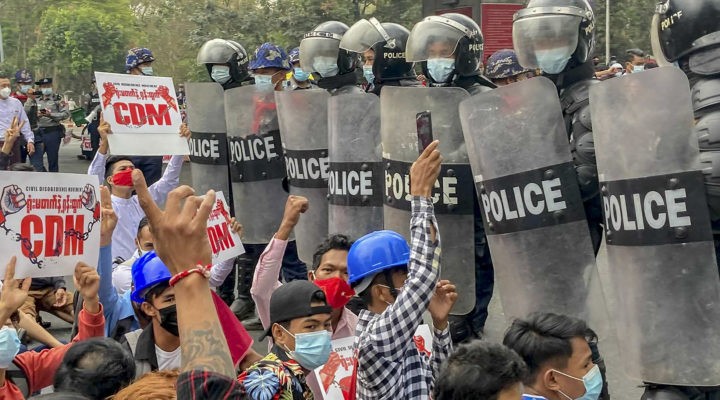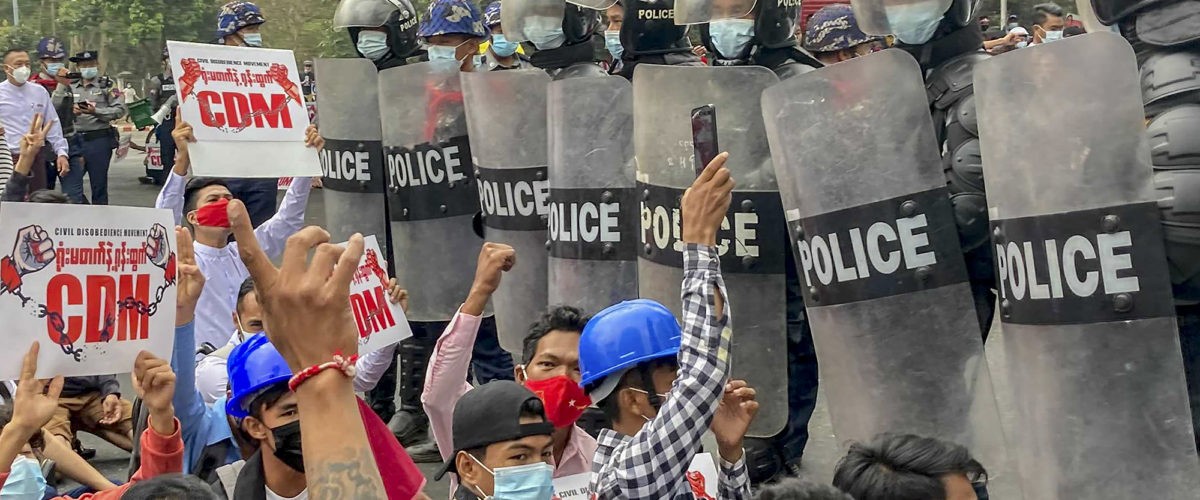Current and former refugees from Myanmar welcome the political pressure bearing down on the nation’s military since it staged a coup against a democratically elected government Feb. 1.
But much more pressure is needed, they say.

Eh Nay Thaw
“I am very disturbed by how much the international community refuses to pay attention to what is going on in the ethnic territories of Burma,” said Eh Nay Thaw, a Louisville, Ky., resident and Burma-rights activist who attends Crescent Hill Baptist Church.
His and others’ concern is for the safety of ethnic and religious minorities currently undergoing brutal military assaults in rural territories overlooked by foreign governments and media.
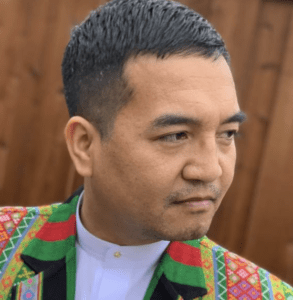
Chan Hnin Thui
“What the military is doing is difficult for Westerners to understand: the unthinkable cruelty of attacking innocent, helpless people who are now looking to the rest of the world for support,” said former refugee Chan Hnin Thui, pastor of a Burmese Baptist congregation in Dallas.
“One of the things we can do for citizens of Burma is to spread the news so the people around the world are aware of what’s going on,” he said.
What’s going on, at least most visibly, is that Myanmar military leaders have arrested government officials and blocked the assembly of a newly elected parliament. Soldiers also have rounded up leading ministers and activists and blocked all travel to and from the nation whose neighbors include China, India and Thailand. Media, telephone service and internet availability have been shut down intermittently.
National protests against the military’s anti-democratic action have continued to expand and, with them, media attention and sanctions by the U.S. and other Western nations.
But outside the more observable realm of Myanmar’s urban areas, the military has renewed its decades-long attacks on ethnic and religious minorities, which include Rohingya Muslims and numerous Christian groups such as the mostly Baptist Kachin, Chin and Karen communities, say those with family, friends and ongoing ministries in the nation.
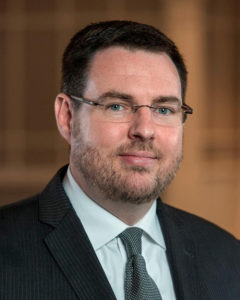
Elijah Brown
“Baptists are among those suffering and feeling the burden of the latest political difficulties in Myanmar,” said Elijah Brown, general secretary of the Baptist World Alliance.
There are 1.7 million Baptists in Myanmar, he said, and in the refugee camps in neighboring countries. Myanmar is home to the second-fastest-growing Baptist population in the world. Globally, refugees from Myanmar constitute the fourth-fastest-growing Baptist community. “That’s the demographic background to this tragedy,” Brown explained.
As of Feb. 15, BWA had learned of 23 Karen (pronounced “Ka-rin”) villages recently destroyed by mortar and artillery attacks, forcing more than 5,000 into internal displacement in remote jungle regions. “We know some Karen have been killed, including a 12-year-old boy who was struck by mortar fire.”
And BWA continues to be concerned about the Muslim Rohingya, who remain the targets of the military in Myanmar, Brown said. “Their genocide is still a reality.”
Baptist ministers in the nation and in nearby refugee camps, meanwhile, are overcome with the pastoral needs of their beleaguered congregations.
“I feel guilty as a pastor when I need to encourage and pray for my people, but I am losing my mind and don’t know how to pray.”
“A pastor said, ‘I feel guilty as a pastor when I need to encourage and pray for my people, but I am losing my mind and don’t know how to pray,’” Brown reported. “We have heard over and over from multiple leaders around the country and around the world who feel despair over what to do and how to help move forward in a peaceful way.”
BWA is responding with aid grants to Baptist associations in Myanmar and by sending letters to the White House and U.S. Congressional leaders advocating for persecuted religious monitories in the nation. Supporters also are being asked to visit the global ministry’s website for prayer guides, templated letters and other advocacy tools.
“This is our moment as a Baptist community to practically lift our voice,” Brown said.
Suffering in this violence-torn nation also has affected Americans who have ministered to and worked side-by-side with Christians in Myanmar.
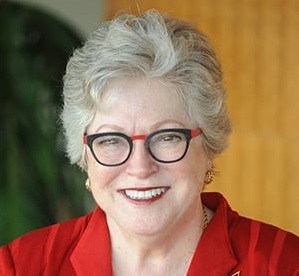
Molly Marshall
“It is exceedingly painful for me because I care deeply about so many persons there,” said Molly Marshall, who during her tenure as president at Central Baptist Theological Seminary traveled and ministered extensively in Myanmar and helped establish a partnership with the Baptist Myanmar Institute of Theology.
“I have been to their churches. I have been in their villages. I have been with them and heard their hopes so often,” she explained.
Life was hard for ethnic and religious minorities even when democracy was emerging in the nation. The latest coup and ongoing anti-Christian and anti-Muslim violence dashes hopes for performing ministry as they have been called to do, Marshall said.
“I’m hearing almost daily from friends there and from faculty at the institute and from our graduates who are in outlying areas. Military rule restricts the possibility of them pursuing building projects, speaking freely and being a faithful Christian witness among their ethnic communities.”
Another cruelty is that reforms were being made in some parts of the country before the coup, Marshall added. “It’s only been a few years since there was freedom to invite persons to preach at the churches who were not from there. Another concern is that this is a major step backward, and that any hopes of emerging democracy and religious freedom at this point are pretty well dashed.”
Marshall said one of her specific concerns is for young generations of Christians in Myanmar. “I just hate the grave discouragement that comes to younger Christians as they feel like they are entering a dark period again.”
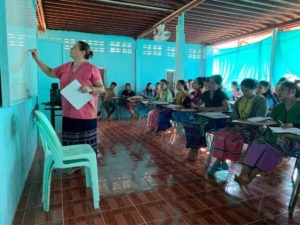
Mary Wood teaching at KKBC
Mary Wood also has traveled to and lived in Myanmar. She served many years as a teacher at the Kawthoolei Karen Baptist Bible School and College, or KKBC, which is located in a sprawling refugee camp on the Myanmar-Thailand border. She has traveled annually to the region since 2004, often under the auspices of the American Baptist Churches USA’s International Ministries.
Now her friends among the Karen Baptists are sharing about their own dark period hiding from the military in Myanmar’s most isolated regions.
“Their villages have been burned and shelled. Many have been killed, and the survivors are living in the jungle without any means of support, just eating whatever they can catch,” said Wood, an ordained Baptist minister and pastor at Calvin United Church of Christ in Toledo, Ohio. “I am also hearing reports that Burma’s military is blocking roads so that no support can get through to them.
“All of this has been heartbreaking,” she said of the coup and its fallout. “It has caused a lot of concern between families who are separated, including friends in Burma who have lived with me. It’s just heartbreaking to hear the concern that’s expressed by them.”
But the deep faith of Baptists from Myanmar is helping them through the ordeal, she said. “It is their story of resilience — kind of like an Exodus story. Their faith just builds them up spiritually to fight the good fight.”

Chan Hnin Thui
In Dallas, Thui confirmed that the Baptist faith of his roughly 500-member congregation is helping those with relatives and friends still in Myanmar — which is just about everybody.
“As Christians who have been under military dictatorship for so long, faith is what binds us together as a people,” he said. “It is something that gives us strength.”
And that’s often the only source of hope for separated families, which became evident with near elimination of refugee resettlement under the Trump administration, Thui added. “The last four years have been pretty difficult for families, especially for families who have family members (in camps) in Malaysia or India. There was nothing they could do except pray to God that one day they will be reunited again.”
Fellowship also has helped members of his community cope with the ever-worsening news from Myanmar, Thui said. “Anytime two or three of us get together, this situation is the only thing we talk about. It’s how people are able to express their frustration.”
Adding to the pain is knowing that so little attention is being paid to the persecution of religious minorities like the Chin Baptists in Myanmar. “The rest of the world needs to know that they need to support these people who are helpless,” Thui said.
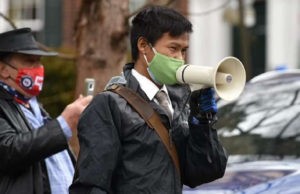
Eh Nay Thaw
In Kentucky, raising that awareness is what Thaw said he is trying to accomplish as an activist with the Karen Organization of America. “We are advocating for targeted sanctions, especially to stop the violence against the Rohingya.”
Motivation is easy to come by, he explained. “The military coup is bringing back lots of memories and trauma for many of the Karen. The coup is a shock to many of us, but it is not surprising knowing the military and its history.”
He urged Americans to contact their representatives and to make financial contributions to organizations working to help oppressed religious minorities in his native country.
“I feel somewhat disappointed and very frustrated that the international community is not paying attention to what is happening to the ethnic groups in the rural areas,” Thaw said.
Related articles:
Baptist pastors among 8,500 released from prison in Myanmar
Myanmar drops lawsuit against Baptist leader who met with Trump

